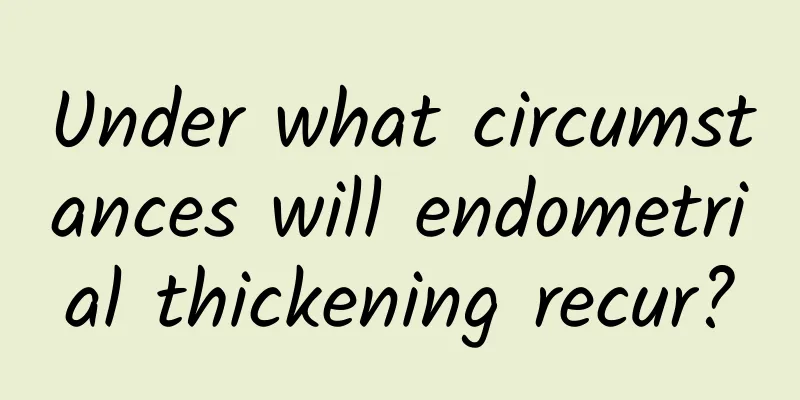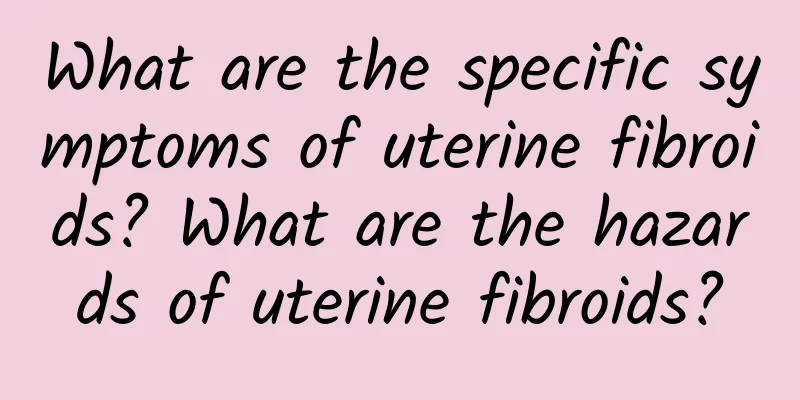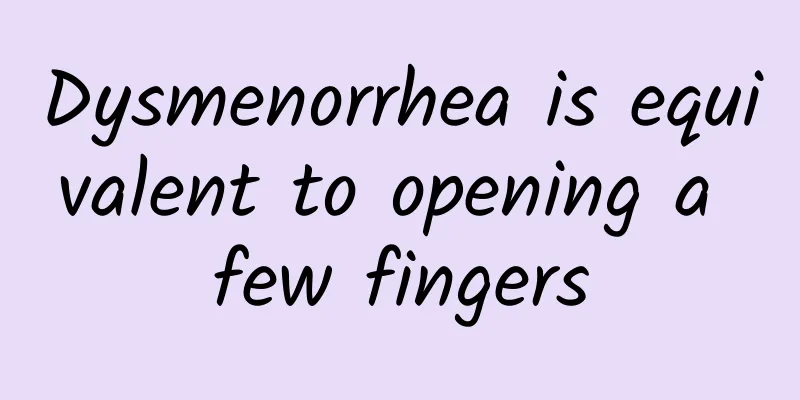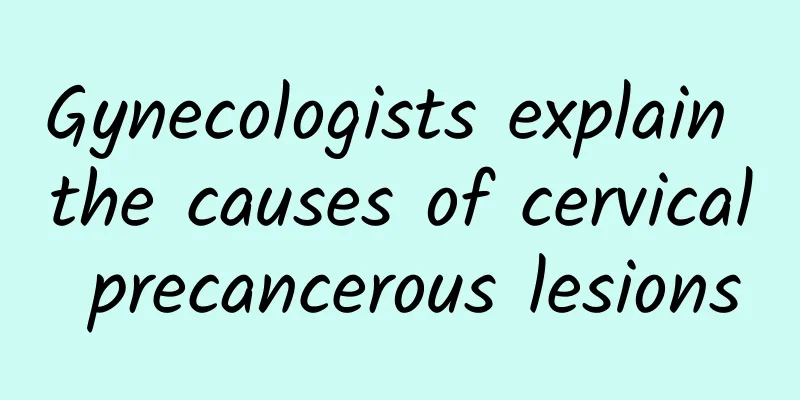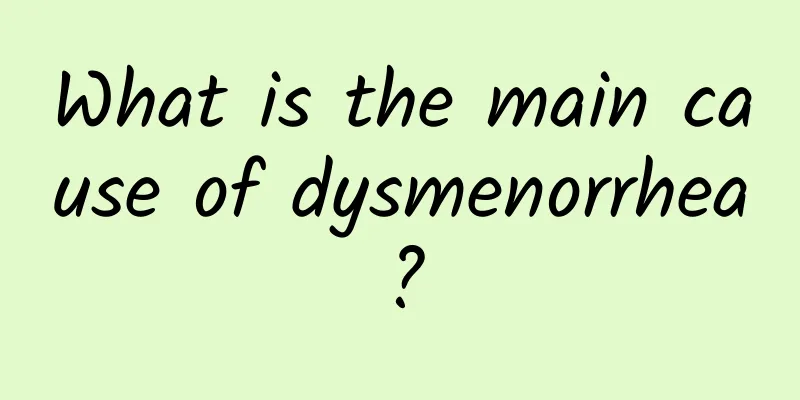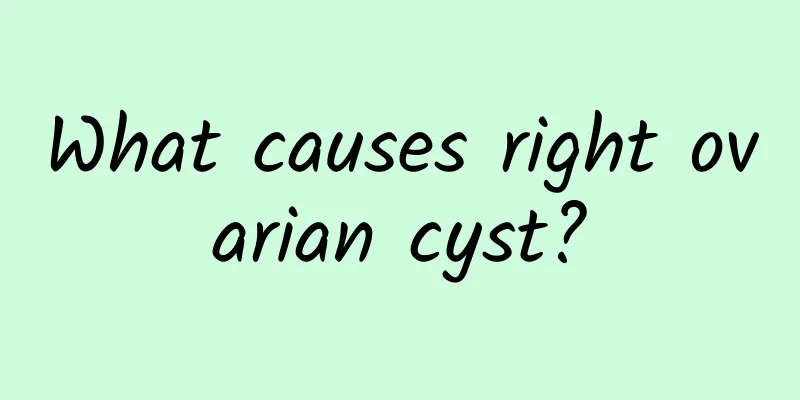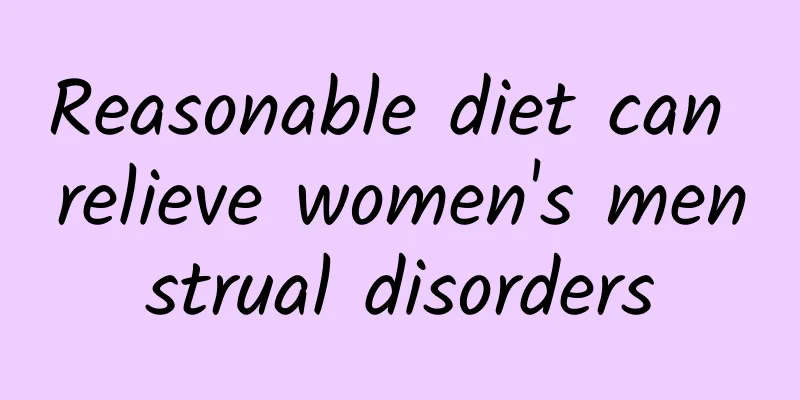When do multiple uterine fibroids need treatment? Treatment of multiple uterine fibroids
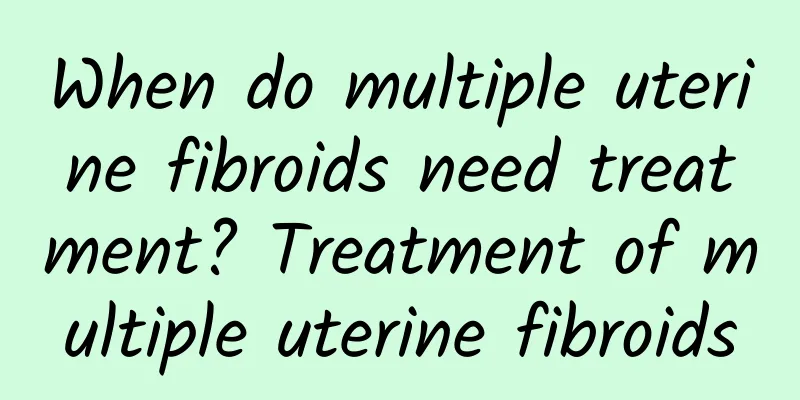
|
Uterine fibroids are benign tumors and one of the most common tumors in the human body. Generally speaking, the possibility of tumor progression is very small. How many treatments are needed for multiple uterine fibroids? How serious is a female uterine fibroid? Generally, once a uterine fibroid is found, if it is less than 5CM, the doctor will recommend not to treat it first, or consider drug control and regular observation. If it is 5CM and the above symptoms are serious, you can consider combining drugs with physical therapy. If the uterine fibroid grows rapidly, it needs to be treated in time, otherwise it may become cancerous when it grows up. Treatment of uterine fibroids depends on the patient's age, symptoms, location, size, growth rate, number, uterine deformation, whether fertility is preserved, and the patient's wishes. In fact, the size, location and symptoms of uterine fibroids will affect the severity of the fibroids. If the growth location is not good, some small uterine fibroids also need surgery. For example, uterine fibroids growing under the mucosa are sometimes only one or two centimeters or even 0.5 centimeters and need surgery, because the submucosal fibroids can cause heavy bleeding. 1. Patients with symptomatic uterine fibroids may develop secondary anemia or even anemic heart disease. Excessive menstrual blood loss may cause secondary anemia or even anemic heart disease. In severe cases, symptoms such as general fatigue, pale complexion, shortness of breath, and palpitations may occur. This is common in submucosal uterine fibroids and intramural uterine fibroids. In this case, it cannot be delayed at will. It is recommended to perform surgery at the right time, otherwise it may be life-threatening. Generally speaking, surgical treatment should be considered once cervical fibroids, broad ligament fibroids, and submucosal fibroids are found. 2. Suspected malignant changes in uterine fibroids The probability of malignant changes in uterine fibroids is very small, generally less than 1%. People with older age, larger fibroids, and faster growth, especially when fibroids grow fast after menopause or occur after menopause. Therefore, although most uterine fibroids shrink after menopause, they cannot be completely taken lightly and should be checked regularly. 3. When the pedicle of a subserosal fibroid is twisted, it often presents as acute lower abdominal pain. If surgery is not performed in time, the necrotic fibroid may lead to secondary infection, severe septic shock, intestinal adhesions and intestinal obstruction. |
>>: What causes multiple uterine fibroids? What is the best diet for multiple uterine fibroids?
Recommend
Powerful fight against obesity! 3 exercises a day, lose 18kg quickly after giving birth
There are many pregnant mothers who gain nearly 2...
Experts explain the causes of ectopic pregnancy
Ectopic pregnancy is very harmful to many pregnan...
How to check for premature ovarian failure
Premature ovarian failure refers to a disease in ...
Experts explain the dangers of cervical precancerous lesions
Cervical precancerous lesions are a disease that ...
Ovarian cyst pain
Ovarian cyst pain The pain of ovarian cysts may b...
Is it right for children to drink fresh milk? Nutritionists teach you how to distinguish the nutrition of fresh milk!
Fresh milk is a very popular drink in daily life....
How long after a miscarriage can you have a child? What should you pay attention to after a miscarriage?
Some female friends with poor physical fitness wi...
Being thin does not mean having a good figure, having tight lines is the key!
[Key Points]: I have really lost a lot of weight!...
Does adenomyosis cause pelvic mass?
Adenomyosis may cause pelvic masses, but the spec...
Eating turns your brain into brown fat, which generates heat
"Cell Metabolism" recently published th...
Is third-degree cervical erosion serious? Third-degree cervical erosion can cause these harms
Cervical erosion is a common gynecological diseas...
How does vaginal inflammation develop?
How does vaginal inflammation develop? Vaginitis ...
Clinically, patients rarely experience symptoms of painful ovarian cysts.
When women find themselves infertile, please do n...
Do women with mild cervical erosion need treatment? Women with mild cervical erosion may not need treatment
Cervical erosion is actually a misunderstanding o...
Menopausal obesity cannot be eliminated, and the two main culprits are found! Nutritionist Sun Yuming: 3 tips to say goodbye to fat belly and regain metabolic power
After women enter menopause, their basal metaboli...
